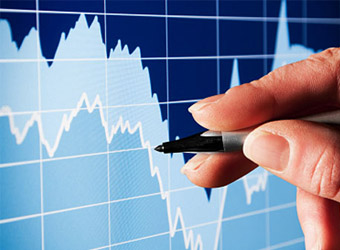In Egypt, it’s not just ancient antiquities being rediscovered, as the North African country’s asset markets have become increasingly valuable to investors.
Amid civil conflict, terrorist violence and regional troubles, Egypt is re-emerging as a destination of choice for global investors flocking to its energy, real estate and financial sectors. The Middle East’s most populous country is plowing ahead with economic reforms, spurring more investment on the back of a $1 billion International Monetary Fund loan disbursed in July.
The implementation of a new investment law is widely expected to improve the ease of doing business and sanctity of contracts. Meanwhile, more discipline on public spending imposed by the IMF should put government finances on a more sustainable footing. The fund is currently anticipating growth of about 4 percent.
Ultimately, “investors wish to see a strategy put in place to develop sustainable, job creating, manufacturing exports,” Hasnain Malik, global head of equities research at Exotix Capital said in an interview.
“Free zones and more equal access to land,” are key attributes of a recovery, with a boost to exports seen as “the holy grail” for job creation, Malik added.
In a vote of confidence, Egypt’s central bank held its key interest rates unchanged at a meeting last week. Since floating its currency, the pound, last November, monetary authorities have hiked rates by 7 percent.
Higher rates lure investors, but also play a role in taming inflation rates — which have surged to multidecade highs as the government scaled back energy subsidies.
“Our outlook for the Egyptian market is positive. Egypt is well-positioned for economic growth, as the country’s macro environment has improved,” Asha Mehta, senior vice president and portfolio manager at Acadian Asset Management, told CNBC in an interview.
Tourism and financials shine, but watch the pound
Egypt’s pound, however, remains a wild card. Analysts say a fixed exchange rate could work as long as it doesn’t involve capital controls or inhibit growth by undermining exports.
“Many market observers [believe] the IMF would prefer that Egypt allow the currency to float more freely,” said Win Thin, global head of emerging market currency at Brown Brothers Harriman.
Egypt’s currency policy “requires a credible policy framework, reasonable macroeconomic growth and plentiful foreign exchange reserves,” Exotix’s Malik said.
Indeed, after Egypt devalued the pound in 2016, the currency dropped by 50 percent, but eventually it stabilized as rates were hiked and investors chased the higher returns.
Now, with money pouring back into Egyptian assets and the central bank hiking some 300 basis points since the float, markets are looking towards tighter monetary policy in Egypt.
According to Malik, foreign direct investment is flowing into oil and gas, power and real estate. Egypt’s real estate is also providing a hedge for the high inflation environment. All of this should drive a better outlook for building materials, construction and property.
“The much more competitive exchange rate should also favor exporters. Tourism is picking up but from a very low base and with excess capacity, for now, in hotels,” he added.
Yet risks remain, even with the Egyptian pound having now recovered from being the worst emerging market performer in 2016. “Despite the macro view, corporate quality is somewhat weak given the historical currency environment, both in terms of cash-flow generation and overall asset quality,” said Mehta.
As the country prepares to see at least 3 initial public offerings by year’s end, Mehta recommended investors engage in “opportunistic stock selection” that takes advantage of growth prospects.
“Given the country’s positive positioning relative to global risk factors … we are finding opportunities in the financial sector,” he said. “We find opportunity in banks that have diversified sources of growth, a track record of cash-flow generation despite recent events, and with discounted valuations.”
Source: CNBC & Reuters


